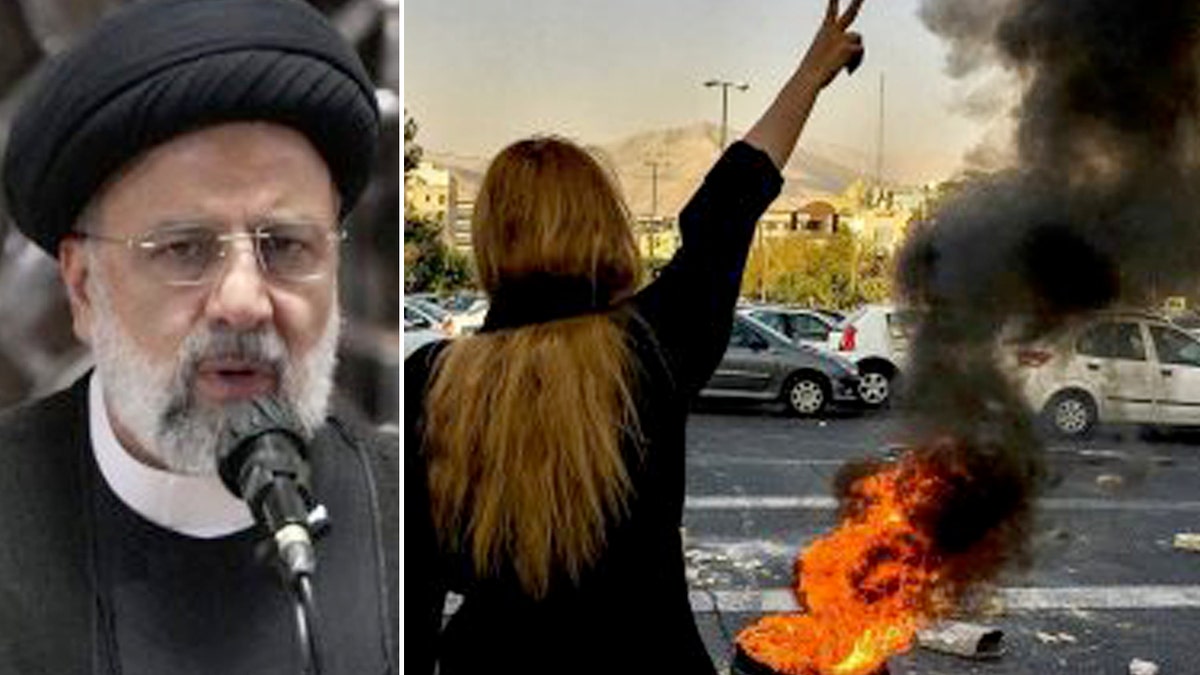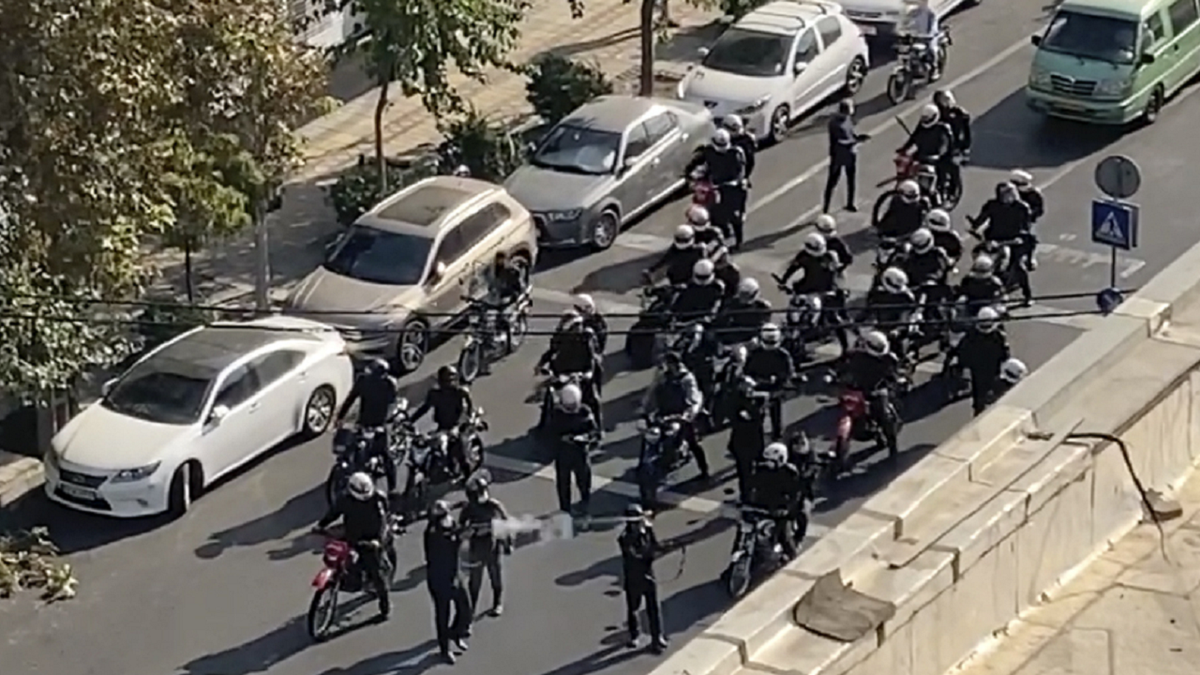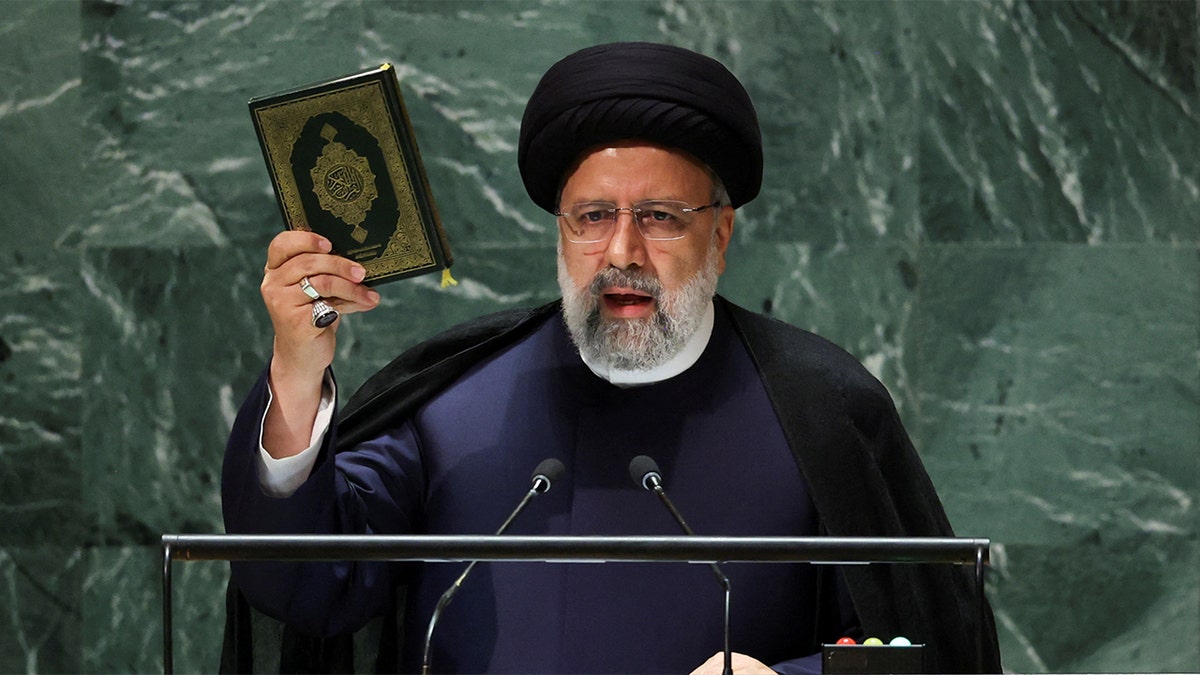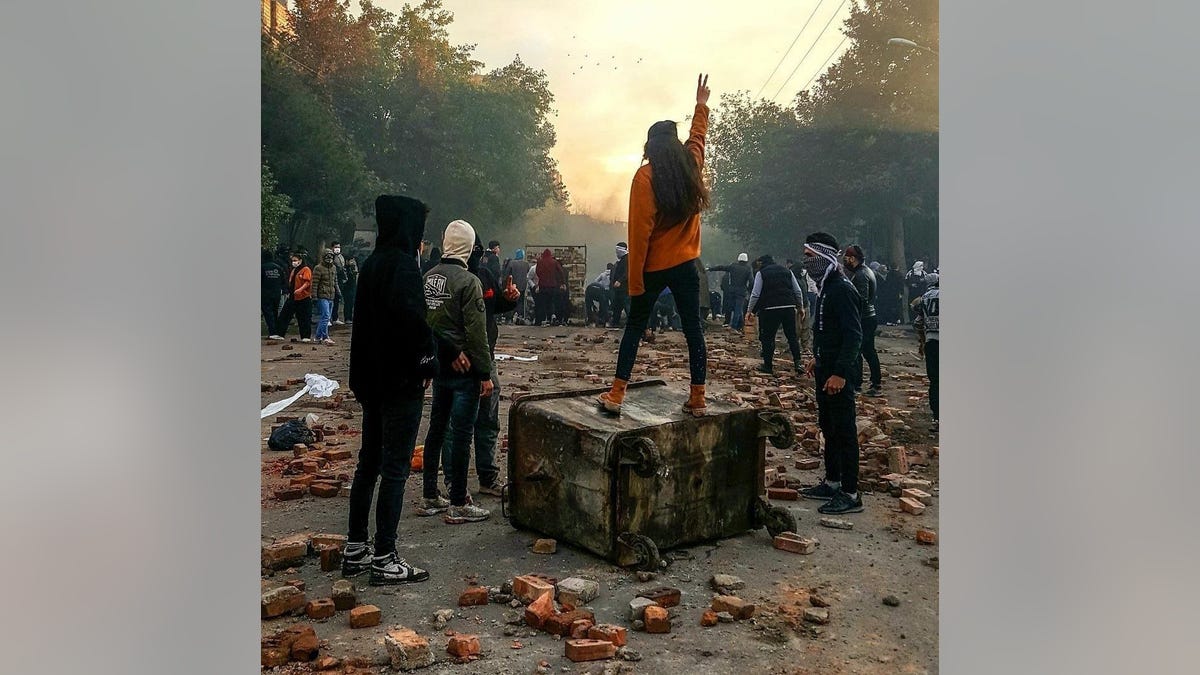Iran Protests, 2022 (WARNING: Contains some graphic content.)
Over 100 days of nationwide protests in Iran have demonstrated the greatest pushback against the decades-old regime and its repressive policies, showing the world that the people demand rights they have long been denied. (CREDIT: The Foreign Desk)
Iranian President Ebrahim Raisi expressed no regrets about how his government handled widespread protests in the country last year, even as reports of mass arrests being made in the country as the anniversary of the protests in response to the death of Mahsa Amini approaches.
"Those who carried out terror, who have killed individuals, who have attacked police and security forces, who had made some destruction in the country, of course we did not have mercy upon them," Raisi told NBC News' Lester Holt last week in his first interview with a Western news organization since Amini's controversial death in police custody last year.
The Iranian leader's comments come as the anniversary of widespread protests that rocked Iran for roughly six months last year approaches, with NBC News reporting that authorities in the country have already begun a crackdown on activists who may attempt to reignite the issue. Authorities in Iran reportedly detained at least a dozen women's rights activists last month, while Raisi warned in the interview that those who attempt to sow more instability in the country would pay a "big cost."
According to a United States Commission on International Religious Freedom report last week, Iranian authorities had also stepped up efforts to arrest religious leaders in an apparent attempt to crack down on any potential rekindling of demonstrations.

Left: Iranian President Ebrahim Raisi. Right: Protests after the death of Mahsa Amini in police custody. (AP Photo/Middle East Images/AP Photo/Dita Alangkara)
"Iran’s arrests of religious leaders, particularly the re-arrests of Baha’i leaders, is gravely concerning," USCIRF Commissioner Eric Ueland said in a statement at the time. "The Biden administration must lead further multilateral sanctions efforts to hold Iran’s leaders accountable for these contemptible and inexcusable violations of religious freedom. It also should support a United Nations Security Council resolution to refer the matter of Iran to the International Criminal Court."
A White House National Security Council spokesperson told Fox News Digital that Iran has continued to show "disregard for the human rights" while "killing Iranians, including children, and detaining and abusing others. That is why the people of Iran are protesting."
'"The United States is leading multilateral efforts to support the free flow of information to the people of Iran, to hold perpetrators of these human rights abuses to account, and to reinforce the condemnation of the regime’s brutal violence at the forefront of the international community," the spokesperson said. "Canada, the United Kingdom, Australia, the European Union, and EU members have joined us in sanctioning Iranian officials and entities for involvement in the regime’s brutal suppression of peaceful protests, state-sponsored violence against women, and censorship."
But Raisi insisted in his interview with NBC News that the country was ready to listen to "genuine protesters" but warned against what he characterized as foreign-led efforts to destabilize Iran.
"Those who intend to abuse Madam Amini’s name, under this pretext to be an agent of foreigners to create this instability in the country, we know what ... would happen to them. And they know that endangering the security of people and (the) security of society will create a big cost," the Iranian leader said.
The one-year anniversary of Animi's death in police custody, which sparked the largest challenge to the Iranian regimes rule since its 1979 founding, passed over the weekend with little unrest. At this time last year, protesters demanded rights for women and for dramatic changes to Iranian leadership and law. Iranian authorities led a brutal crackdown on the protests, with human rights groups estimating that the country's security forces had killed more than 500 people in addition to arresting tens of thousands of demonstrators.

Iranian police arrive to disperse a protest to mark 40 days since the death in custody of 22-year-old Mahsa Amini, whose tragedy sparked Iran's biggest antigovernment movement in over a decade, in Tehran, Iran, Wednesday, Oct. 26, 2022. (AP)
IRAN EXECUTES FIRST PROTESTER SINCE NATIONWIDE WOMEN'S RIGHTS DEMONSTRATIONS BEGAN
Raisi insisted that security forces worked to peacefully deal with what he felt were legitimate demonstrators, but claimed that Western countries helped fuel some protests that aimed to attack the Iranian government.
"It was a hybrid war and a cognitive war. It was a political war. It was an economic war, a media war, and a psychological war against the Islamic Republic of Iran," Raisi said. "They did not care about Madam Amini.
Raisi echoed a similar sentiment during his speech Tuesday to the United Nations General Assembly, saying that "last year was the year of the victory of the people of Iran" over "certain Western nations and their intelligence services" who he claimed "made a grave mistake"and underestimated "the power of Iranian people since the Islamic Revolution is victory under the leadership of Imam Khomeini."
"The enemies of Iran through various and continuous and incessant plots sought to impose their will on our people," he said. "These policies have been defeated by the Iranian people. And the Iranian people have stood victorious again and again."

Iran's President Ebrahim Raisi holds up the Holy Quran as he addresses the 78th Session of the U.N. General Assembly in New York City, September 19, 2023. (REUTERS/Mike Segar)
The Iranian leader went on to claim that the country's people faced "significant waves of media and psychological war" against them over the past year, while rallying against the U.S., who he said "now possesses the biggest women's prison" in the world while portraying itself as a "defender of women's rights."
The protests did lead to a widespread movement across Iran for women to ditch head coverings that have been mandated in public since the beginning of the current regime, with some women continuing to flout those rules a year later.

Demonstrators in Iran cry out in the streets. (Credit: NCRI)
CLICK HERE TO GET THE FOX NEWS APP
Nevertheless, Raisi argued that "most of the Iranian women today are observing hijab" and continue "observing the Islamic principles."
Raisi again blamed the U.S. and other Western countries for attempting to "politicize the issue," including calls to impose more pressure on Iran to change its dress code.
"I believe that they have been defeated in this area, and they will be defeated in future, as well," Raisi said.
Meanwhile, the NSC spokesperson said that the U.S. will continue to support rights for Iranians.
"We will continue our support for the human rights and fundamental freedoms of all Iranians, and we will continue to take action to support the people of Iran in their efforts to determine their own future," the spokesperson said.








































